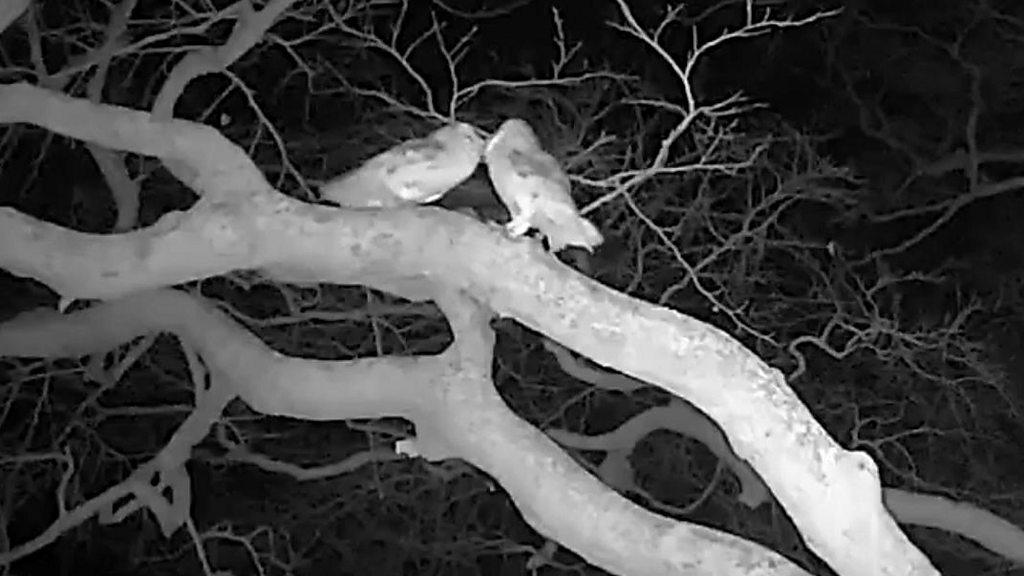Late barn owl brood in County Down causes surprise and shock
- Published
Barn owl surprise after 'strange noises' heard
A barn owl pair, considered to be one of Northern Ireland's most threatened farmland birds, have welcomed an "extremely late" winter brood.
Four chicks were discovered at a nest in Ballycruttle Farm near Downpatrick, County Down in November.
Conservation charity Ulster Wildlife said the brood was one of the latest recorded in Northern Ireland.
Barn owl eggs are usually laid in April, with fledging beginning in June or July depending on the weather.
However, the latest brood fledged - that is, learned to fly - in December, causing shock amongst conservationists.
The barn owl is one of Northern Ireland's rarest birds and is red-listed on the Irish Birds of Conservation Concern and protected under the Wildlife (NI) Order 1985.
There are fewer than 30 breeding pairs estimated to be left in Northern Ireland, which has made the discovery all the more exciting.
'Ecstatic'
Katy Bell, a senior conservation officer at Ulster Wildlife, said she "couldn't believe" it when she was sent an audio recording of the chicks snoring and rasping.
"A visit confirmed the exciting news, but our main concern was whether the chicks would survive given the extremely wet weather and floods," she said.
Despite the fact barn owls struggle to hunt in wet conditions, Ms Bell added, the odds were in their favour as small mammals fleeing providing easy prey.
The team returned a few weeks later and were "ecstatic" to bring in the four healthy chicks.
"This is the second consecutive year barn owls have bred at Ballycruttle Farm - a real testament to their wildlife-rich habitats and practices," Ms Bell added.
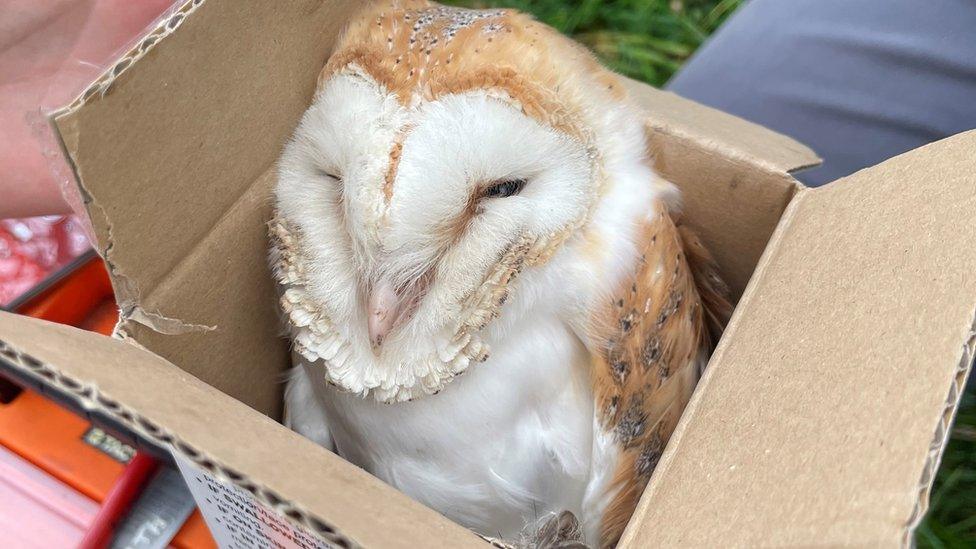
The four chicks have been weighed were declared healthy by conservation charities and groups
However, the story behind the Ballycruttle brood is not too dissimilar to a typical soap opera plot.
Last March, a clattering of jackdaws forced the female from her nest box to a nearby farm, managed by the Kelly family.
The female and a nearby male, who had been hunting on the Kelly farm for many years, then bred and the pair had one chick late last summer.
However, back in Ballycruttle, the male barn owl kept calling for the female to return.
She eventually conceded, leaving the chick in the hands of the male who continued to feed it.
With the pair reunited back in their original nest box, she then lay another clutch of eggs.
'Christmas came early'
Dawn Stocking of Ballycruttle Farm said the "nail-biting" story kept them on their toes.
"I was, of course, disappointed when the female jumped ship to my neighbour's fantastic farm and thought that we weren't going to see any chicks at Ballycruttle this year at all," she said.
"So, you can imagine my utter excitement when I heard babies snoring from the nest box - it was like Christmas had come early!"
Wildlife cameras were installed to catch the brood's antics, catching everything from wing stretches, small hops and even the chicks' first flights.
"It has been absolutely magical," Ms Stocking added.
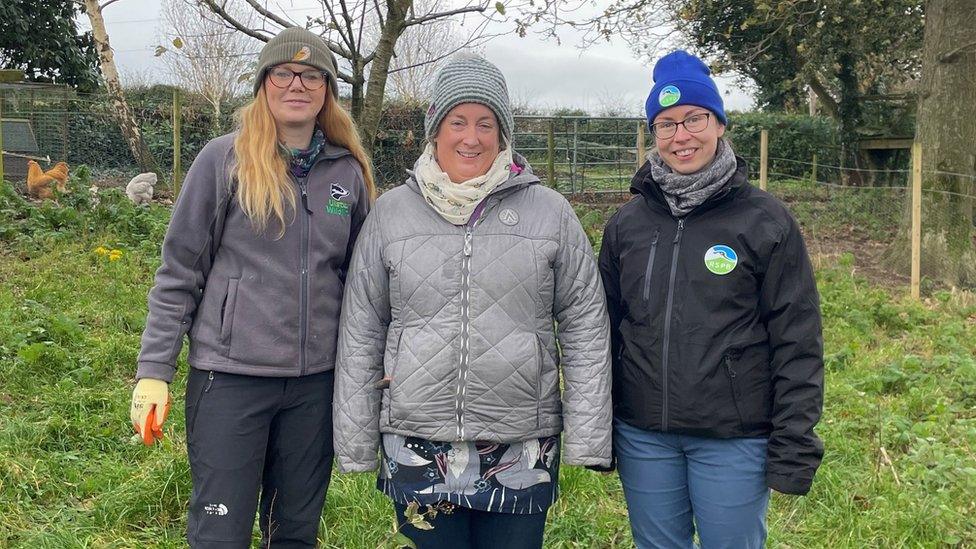
Katy Bell from Ulster Wildlife, Dawn Stocking of Ballycruttle Farm and RSPB NI's Michelle Duggan have welcomed the discovery
Both Ballycruttle Farm and Kelly's Farm are part of a project in County Down to halt and reserve the decline of barn owls led by RSPB NI.
Michelle Duggan from the charity said it was a delight to see the work carried out by the nature-friendly farms yield positive results.
"The valuable seed-rich habitats maintained on both farms are an essential winter food source for the endangered yellowhammer, and also ideal hunting territory for barn owls to catch small mammal prey," she said.
"Healthy hedgerows combined with areas of rough grassland allow barn owls to expand their hunting territory even further."
The chicks have also been rigged to help identify and keep track of the birds' movement.
Related topics
- Published1 March 2023
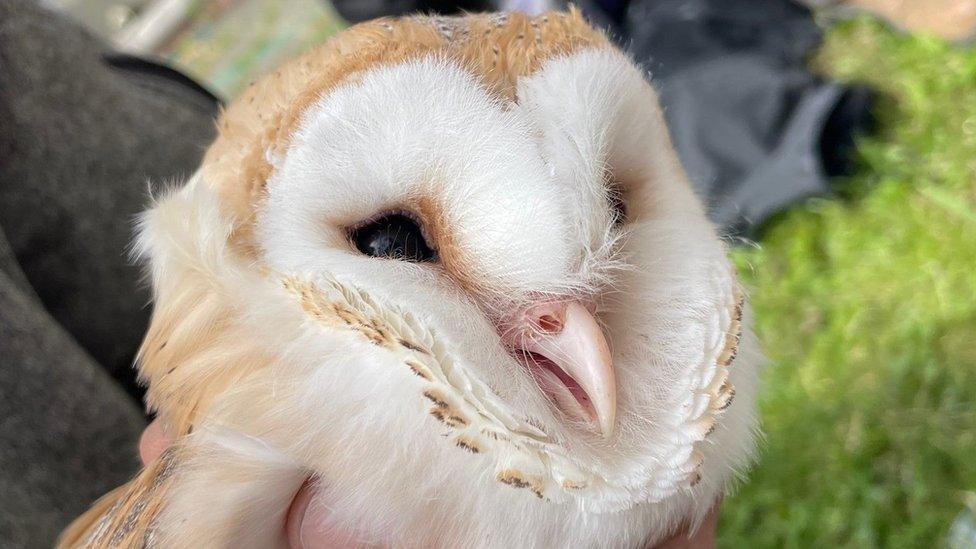
- Published27 July 2018
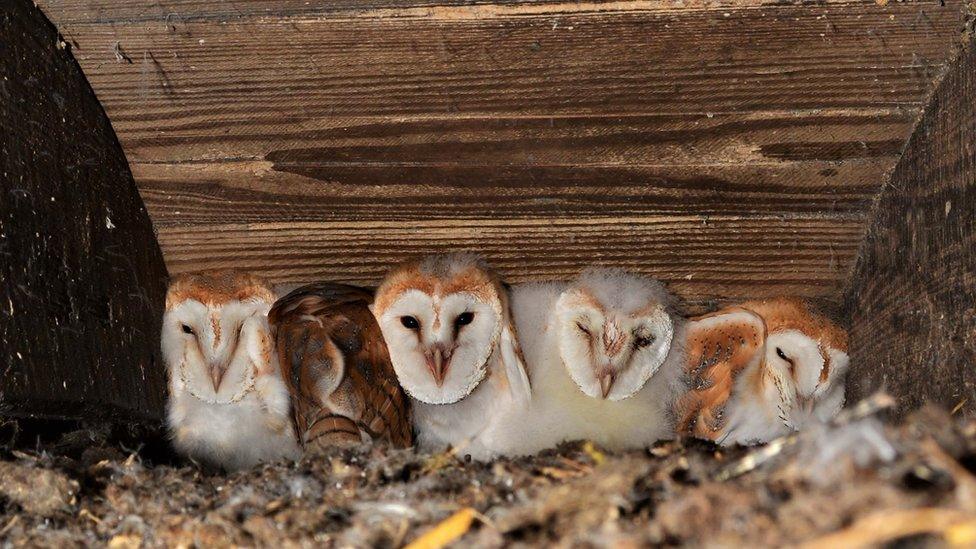
- Published1 March 2023
